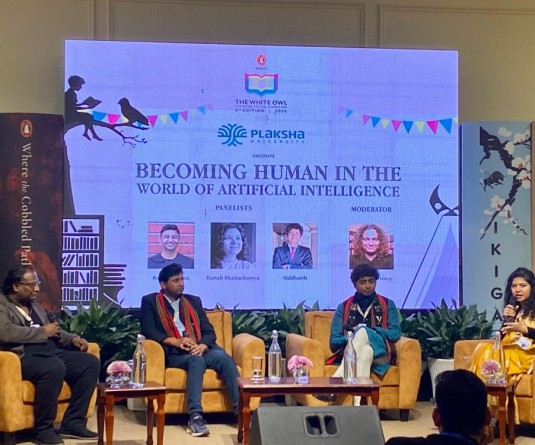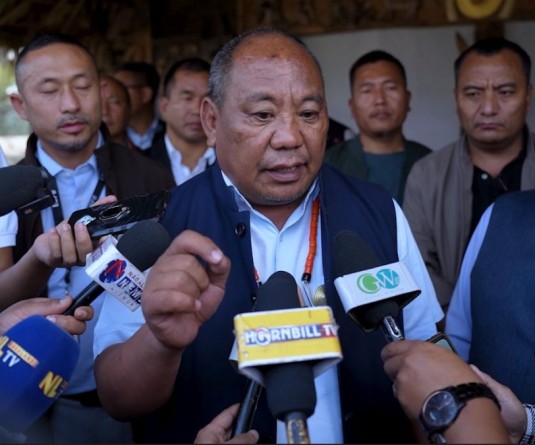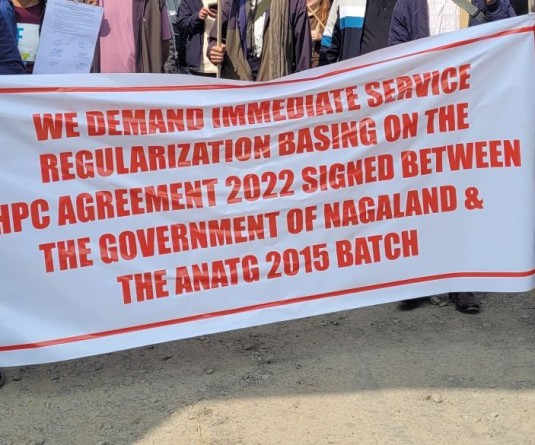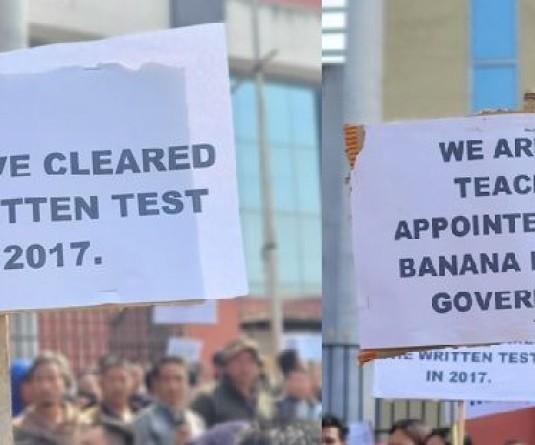
Says, both GoI and NSCN answerable if solution is ‘missed again’
Dimapur, January 17 (MExN): The NSCN (IM) on Sunday said that the Framework Agreement signed with the Government of India (GoI) would not only solve the ‘chronic problems’ of the Nagas and the Indians but also bring a solution, genuine peace, material development and rebuild the psychology and relation of the two peoples.
While expressing its commitment to the Framework Agreement, it maintained that the GoI and the NSCN would be answerable to the peoples of both parties and the generations to come, if a solution is missed again.
In a press statement issued through its MIP, the NSCN (IM) also stated its determination to solve the Indo-Naga political problem “in spite of hurdles here and there.”
Underscoring that past agreements with the government of India could not solve the problem because “they were not Naga issue-based,” the NSCN (IM) stated that the problem has to be viewed from historical perspective as “the situation in Nagaland (Nagalim) cannot be compared with that of others.”
“We want the problem to be dealt with by the root and history is the root,” it added.
It also said that “there is no war situation here in Nagaland now,” and the NSCN and GoI have been in talks for more than two decades with an eye to hammer out solution.
Further stating that it does not see room for fighting between the two parties as of now, the NSCN (IM) stated its belief that “no problem is too big or too hard to solve if it is tackled through mutual trust and respect by the parties involved.”
“This problem cannot be left to be solved by time or left to be exploded. That will be too costly. If this second chance is missed again, government of India and NSCN will be answerable to the peoples of both parties and the generations to come in particular and to the peoples of the world in general. Then, they cannot blame heaven and earth, but it is they who are to be blamed,” the statement read.
The NSCN (IM) meanwhile stated that the term ‘Naga’ is a historical accidental name given by the British imperialists, which later became a recognized common national political nomenclature of the Nagas, who are composed of many tribes and sub-tribes indigenous to the common homeland called Nagaland or Nagalim. “In fact, Naganess is traced from the line of a common history, common identity, common culture, common root of languages, common religion, common political will, and who have been living in the same country free and sovereign under their own government,” it stated.
It recounted how the “twist and turn of history” began with the British imperialist forces, followed by the ‘Indian and Burmese expansionist forces’ against which the Naga people put up resistance for decades.
In this backdrop, it said that the government of India realized that the “Indo-Naga conflict is political not military or domestic problem of India,” and as such, invited the NSCN for political talks at the highest level without any condition, eventually leading to the signing of a cease-fire agreement on August 1, 1997.
The NSCN (IM) further asserted that, “The Nagas are not asking for a piece of land from India. They have their own land only to be recognized by the aggressor states.”
Stating that the Nagas are a sovereign people, it said that “Nagas are not begging for sovereignty from India,” nor asking for a flag from India or others. “Naga flag is the symbol of their recognized unique entity and sovereignty. Nagas are not praying to India for a constitution. The Nagas too have their own constitution called Yehzabo, the foundation and source of their laws through which they have been running their own government for centuries,” it added.
The concept of imperialism, colonialism and expansionism is a thing of the past, it said, while emphasising that it is now the era of democracy where everything is decided by the will of the people.
“The politics of the Nagas is but to decide their future by themselves and manage their affairs by themselves without interference from others...It should be understood that the spirit of co-existence is stronger than that of the forced union,” it asserted, while adding that the “Nagas must grow in as much as they have the right to grow and the potentiality to grow.”
Further stating that the Nagas have come forward for peaceful resolution of the problem through dialogue and are committed to political talks for working out an honorable and durable solution, the NSCN (IM) reiterated that the Framework Agreement would usher in a lasting solution that would be the beginning of a new relationship and a new era for the two peoples.






